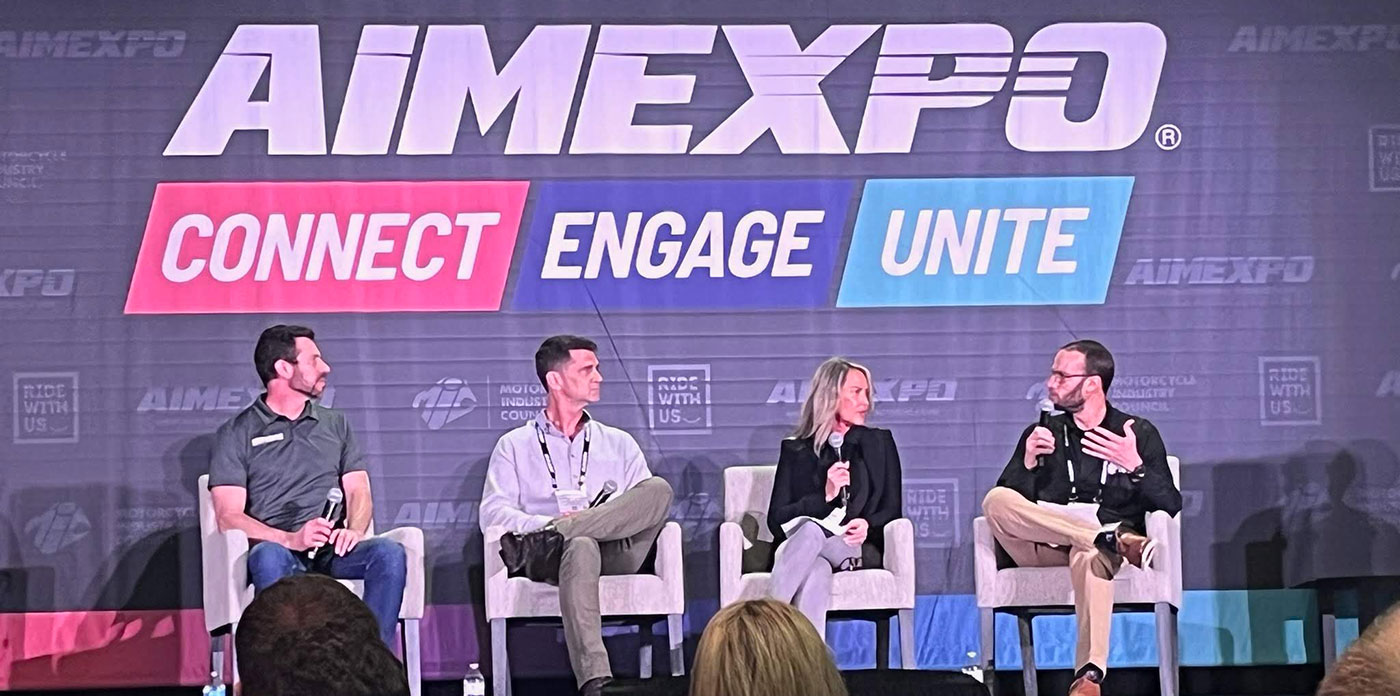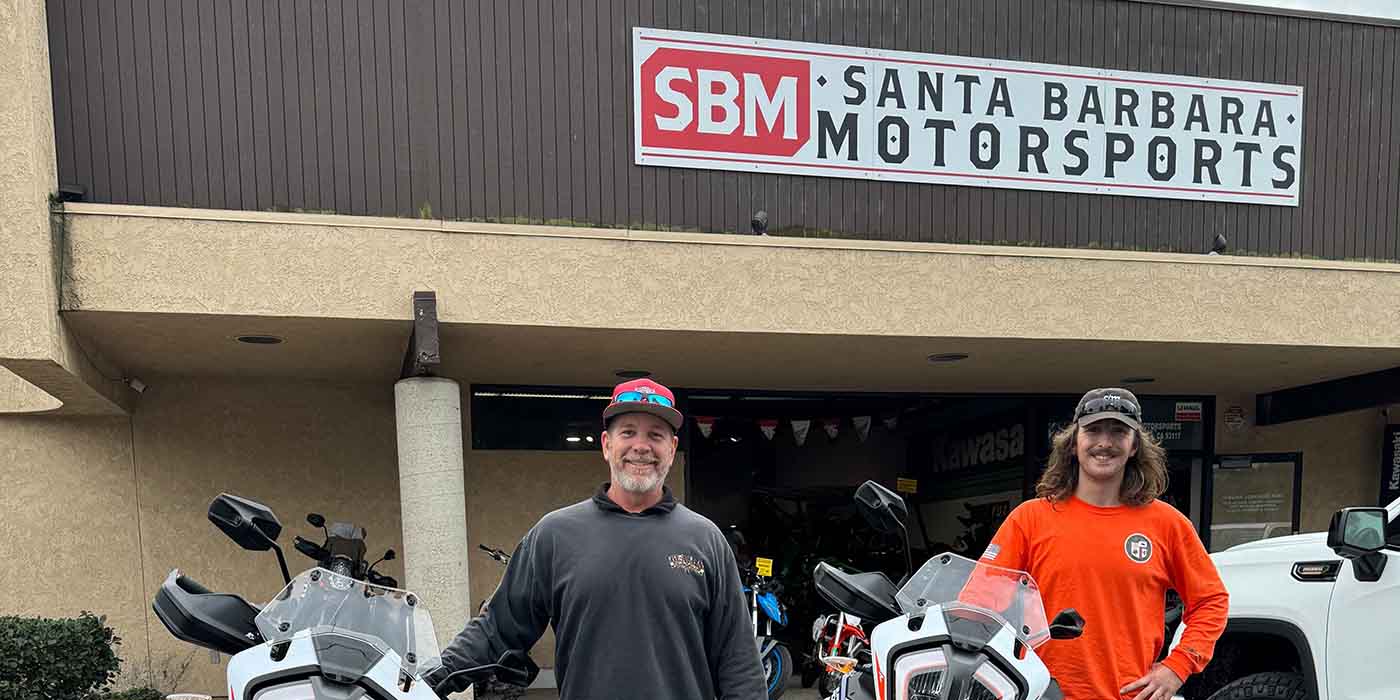A beaming customer is sitting at the table across from you, going over documents; he is in the process of buying a motorcycle. He has gone for a test ride and is in love with that bike. He has picked out all the accessories he wants, and his credit is more than solid. What can go wrong with this deal?
In most states, you have to buy liability insurance to legally ride a motorcycle on the street. In addition, most finance companies demand that the buyer purchase comprehensive insurance to protect the investment of the lender. Is this customer insurable? Can he afford insurance for the bike that he wants?
“Insurance is not something most dealers address,” explains Gart Sutton, president, Gart Sutton & Associates, a powersports consultancy. “It’s low profit, and unless you have a license, you can’t sell it, so most dealers refer the business to an agent.” However, these dealers are ignoring a vital element of many motorcycle sales: Telling a customer to go out and buy motorcycle insurance might have been OK two years ago in flush times, but now, when every sale counts, you don’t want to break a deal because the customer can’t find affordable insurance that meets his or her needs.
Mike Felder used to run a Honda dealership before he went into selling motorcycle insurance full time, becoming one of Progressive’s best agents. “Don’t leave insurance to the customer,” Felder says. “You have to know bike insurance, what variables there are that will reduce the premium, and which companies charge more for insurance for the bike your customer wants to buy. If the customer can’t get insurance, or can’t get affordable insurance, you lose the sale. You lose the commission, the service contract, the accessory sales, the service work and the referrals.”
In fact, only a minority of dealers sell insurance, and it certainly isn’t for the cash — the commission on each insurance application is not very high. These dealers do it only because it gives them an edge on sales.
“It’s a convenience for the customer,” says Teresa Mar, business manager of Mission Motorcycles and a licensed insurance agent. “They can take the bike home that day; they don’t have to hunt down insurance.”
Even if you don’t sell insurance yourself, acquiring an in-depth knowledge of who is selling motorcycle insurance in your state, which insurance companies have surcharges that apply to the lines you sell, and what discounts are available, won’t cost you anything but your or your salespeople’s time. This information provides immediate, tangible value to the customer and an edge to you.
“Knowing about insurance in my state is just part of good customer service,” says Maya Lai, saleswoman for San Jose’s Moto Italiano. “We have a good working relationship with an insurance agent and, in addition, we finance through State Farm. A lot of the people I see here are worried about insurance. The fact that I can often help them makes it much easier to sell them a bike.”
Lai remembers the time when a young, upset customer came to the dealership because he had been unable to buy a bike at another dealership due to insurance woes. “I sent him to the insurance guy we deal with,” she says. “He got insurance at a reasonable price and bought the bike from me. A few days later, he was back with a friend, who also bought a bike.”
Some groups of people often have insurance problems, even if they have good driving records, and taking action before the sale can minimize the possibility that the deal will collapse because of insurance issues. Sutton recounts a dealer’s meeting he hosted. “One dealer said that, when he is dealing with a younger rider, he always asks if they already have insurance on a previous motorcycle. If they don’t, he calls his insurance agent to see if they can get insurance for the motorcycle they are interested in.”
“Another dealer,” Sutton continues, “said that he doesn’t sell the power of the motorcycle until he sees whether the prospective buyer can get insurance. Still another said he always discusses insurance during the qualifying stage.”
“There are two kinds of riders who are going to have trouble with insurance,” Progressive’s Felder explains. “The first you know about: the younger rider, the kid who is gaga over a sportbike, the woman who has just learned to ride and doesn’t presently own a bike. You should call your insurance agent to prequalify them before you sign the sales contract. Let the insurance agent give them the bad news.”
Mike goes on to explain that it is unlikely that a young rider who has his heart set on the latest, fastest sportbike — the one that will cost a thousand dollars in bodywork repairs if it falls over in a parking lot — can be convinced that a similar model is worth buying, even though the insurance will cost far less.
He suggests that you give the young rider (or an older rider who is getting back into the sport after a twenty year absence) the schedule for Motorcycle Safety Foundation classes in your area. The MSF insurance discount can be significant and may bring the total cost of the motorcycle and insurance for the motorcycle within budget.
“It is in your best interests to have the motorcycle handbooks and sample tests from the Department of Motor Vehicles on hand,” Mission Motorcycle’s Mar says. “Keep the list of motorcycle safety classes in your area updated. Make sure you can answer questions about training. Your customer should look to you as a source of information, as someone who will give them an inside track.”
“The second type of customer who has insurance worries might surprise you,” Felder continues. “It’s the older, experienced rider who has a basic bike or scooter. He’s got a good driving record and he has always insured his bike with the same insurance agent who insures his house and car. The insurance agent covers the scooter for $300 a year, and he’s happy. Now, our hero wants a sportier bike, and all of a sudden he is looking at more than double the yearly premium. Many general insurance companies charge a great deal more than they should to insure larger displacement motorcycles — or, sometimes, certain larger displacement motorcycles.”
Felder says this happened to the guy who owns the cafe where he gets his coffee in the morning. He had gotten bored with his scooter and bought a Harley Sportster. Mike was able to halve the cafe owner’s insurance premium by placing his insurance with a motorcycle-oriented insurance company.
In the last few years, some insurance companies have started to aggressively promote motorcycle insurance. Open any consumer-oriented motorcycle magazine, and you will see full page ads for GEICO, Progressive or Allstate. “It’s a market in flux,” Mar says. “A company that might be competitive one month may not be competitive six months later. It’s good business to steer your customers in the right direction, so they get the best insurance quote they can get.”
Your customers have more choices for insurance than they have ever had. If you can help your customers by referring them to the right insurance agent and by giving them tips on how to lower their premiums, you will have happy customers who will tell their friends how great you are. And you don’t have to spend a dime.
“Leave nothing to the customer,” Felder emphasizes. “Customers don’t know insurance. You can’t manage what you don’t monitor.”













